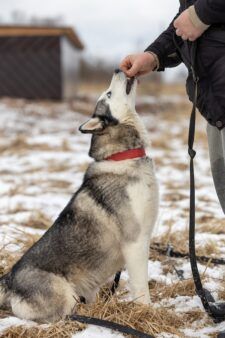Advertisement
Tips on Adopting a Rescue Dog
Adopting a rescue dog is a rewarding experience that not only changes the life of the dog but also brings joy and companionship to your home. However, it’s important to approach the process with patience, understanding, and a commitment to building a strong bond with your new furry friend. Here are some tips to help you navigate the journey of adopting a rescue dog.

Research and Assess Your Lifestyle
Before adopting, research different breeds and assess your lifestyle. Consider the dog’s size, energy level, and temperament to ensure a good match with your living situation and daily routine.
Visit Local Shelters and Rescues
Visit local animal shelters and rescue organizations to meet a variety of dogs. Spend time interacting with different dogs to observe their behavior and find one that matches your personality and preferences.
Consider Adult Dogs
While puppies are often popular choices, consider adopting an adult or senior dog. Adult dogs usually have established personalities, and their energy levels and behavior are more predictable.
Ask About the Dog’s History
Inquire about the dog’s history, including any previous homes, medical history, and behavior assessments. Understanding the dog’s background can help you address specific needs and challenges.

Meet Basic Health Requirements
Ensure the dog has received necessary vaccinations, is spayed or neutered, and has undergone a basic health check. Discuss any existing health concerns with the shelter or rescue staff.
Be Patient and Understanding
Recognize that rescue dogs may have had challenging pasts. Be patient and understanding as your new dog adjusts to their new home. Allow them time to build trust and feel secure.
Create a Safe and Comfortable Space
Prepare a designated, safe space for your new dog to acclimate to their new surroundings. Provide a comfortable bed, toys, and a quiet retreat where they can feel secure.
Establish a Routine
Dogs thrive on routine. Establish a consistent schedule for feeding, walks, playtime, and bathroom breaks. Predictability helps the dog feel secure and builds trust.
Enroll in Training Classes
Consider enrolling in basic obedience training classes to strengthen your bond and establish clear communication with your new dog. Positive reinforcement techniques work well for building trust.
Socialize Gradually
Gradually introduce your rescue dog to different environments, people, and other animals. Take it slow and monitor their reactions to ensure positive socialization experiences.
Provide Mental Stimulation
Keep your dog mentally stimulated with puzzle toys, interactive games, and training sessions. Mental engagement is as important as physical exercise for a dog’s well-being.
Regular Veterinary Care
Schedule regular veterinary check-ups and vaccinations. Discuss any concerns or behavioral issues with your veterinarian to address them early on.
Monitor Diet and Nutrition
Feed your rescue dog a balanced and appropriate diet. Consult with your veterinarian to determine the best nutrition plan based on their age, size, and health condition.
Build a Strong Bond
Spend quality time bonding with your new dog through play, walks, and positive interactions. Building a strong bond fosters trust and enhances the overall relationship.

Be Open to Professional Help
If behavioral issues arise, be open to seeking professional help from a certified dog trainer or behaviorist. They can provide guidance and strategies to address specific challenges.
Remember that every dog is an individual, and their needs and preferences may vary. Approach the adoption process with an open heart and a willingness to learn about your new companion. With time, patience, and love, you can create a lasting and fulfilling relationship with your rescue dog.










